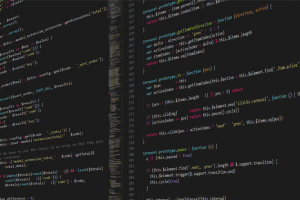
Portability of Java Programming Skills
You can program in Java. That’s great! But what else can you do with those skills? Are you trapped with Java?
Not at all. Here are some other languages, and a brief look at what your Java programming skills will give you in the way of a head start, and what differences to look out for.
C# (C Sharp)
C# and Java are practically the same. C#’s roots are in Java, as is the concept of its libraries relative to Java’s API. The libraries differ, but if you’re used to Java’s API you’ll have no trouble getting right into C#’s libraries to find the classes you’re looking for.
The major development tools are very similar, or, in many cases, you can use the same IDEs for C# as for Java. You can also do cross-platform development in C# just as you can with Java thanks to tools like Mono (which I highly recommend as a way of becoming familiar with C#) and the forthcoming cross-platform Visual Studio tools from Microsoft.
C
Java is an object-oriented descendent from the C language. C does not have object-orientation built in, but you should have no trouble understanding much of the code. Imagine writing Java without creating your own classes, or only creating limited classes. This isn’t strictly accurate, since it is possible to write object-oriented code in C, it just requires the programmer to do much of the work that Java does in their code. Providing for isolation of data, inheritance, etc. has to be performed through code written explicitly to perform these functions.
The basics of C will already be familiar to you, but you should conduct some formal study of C and use its standard libraries extensively before seeking to start formal projects with it.
C++
C++ is another object-oriented outgrowth of C, like Java, yet it uses a very different approach. You will find that your Java experience can be very misleading with respect to the handling of data and the operation of methods in C++. Also, C++’s libraries tend to be much more platform-specific than those of Java. In Java you have platform-specific libraries, yet it is possible to write good code that does not rely on it, or that relies on it little enough to allow 90% or more of your code to be written in a non-platform-specific fashion.
With C++, however, you’ll find that while there are standard cross-platform libraries, most code will be best written to the platform to which it is being compiled.
Python
Python will be very easy to learn once you know Java. Its syntax is quite different, and its approach to what is implicit and what must be explicitly defined is very different to that of Java. Conceptually, however, you will be right at home and will be able to learn the specifics of the language very easily.
Like Java, Python has extensive libraries. Some are part of Python’s core distribution, but others are not. You will find that even in the core libraries there is much less cross-platform support than Python seems to promise. Also, you will need platform-specific libraries for any graphics or audio code. Even in cross-platform libraries, you will find that there are significant differences between platforms. If you are writing code that does not rely on the platform for presentation, however, (for example code that uses a browser), Python works very well in a cross-platform environment.
Javascript
Javascript is also very similar to Java in many ways, but not as much as the name of the language might lead you to believe. Java has recently acquired many of the constructs that have been favorites of Javascript programmers for years.
You will find that handling data under Javascript is very different to the means used in Java. You will also find the nomenclature very, very different, despite the similarities in the languages. This will probably be your biggest early hurdle in transitioning from one language to the other.
With Javascript, the web browser is almost certain to be your “platform.” You will need to learn the Domain Object Model to effectively apply Javascript. If you have already been using the DOM with your Java code (over half of Java code is written for the web), then you are already there. Otherwise, it’s something else new you’ll have to learn.
Objective-C
The transition from Java to Objective-C is far simpler than to C++. The object-oriented techniques used in Objective-C will make immediate sense to a Java programmer, as will the program structure. Objective-C requires you to do your own memory management, unlike Java, but it provides facilities to do so more simply and effectively than standard C.
The libraries will differ completely from those of Java, and your platform will almost certainly be iOS or Macintosh, so those are the platforms whose libraries you’ll learn. Objective-C differs from Java more than C#, but not so much as to make it extremely difficult to transition to. After C#, Objective-C is probably the easiest non-scripting language for you to learn.
PHP
PHP does not have the sort of object-oriented programming facilities that you will be used to from Java, but its syntax will be easy for you to pick up. You will likely feel limited by PHP compared to Java, but PHP has a more limited purpose than Java–it is focused on web programming. While Java is heavily used for server-side web programming, it is much more of a general purpose language than PHP.
You will need to learn the specifics of PHP’s syntax and data structures, but after mastering Java, you will not find this difficult.
Leave A Reply
You must be logged in to post a comment.




1 Comment
Thanks for sharing this useful post.